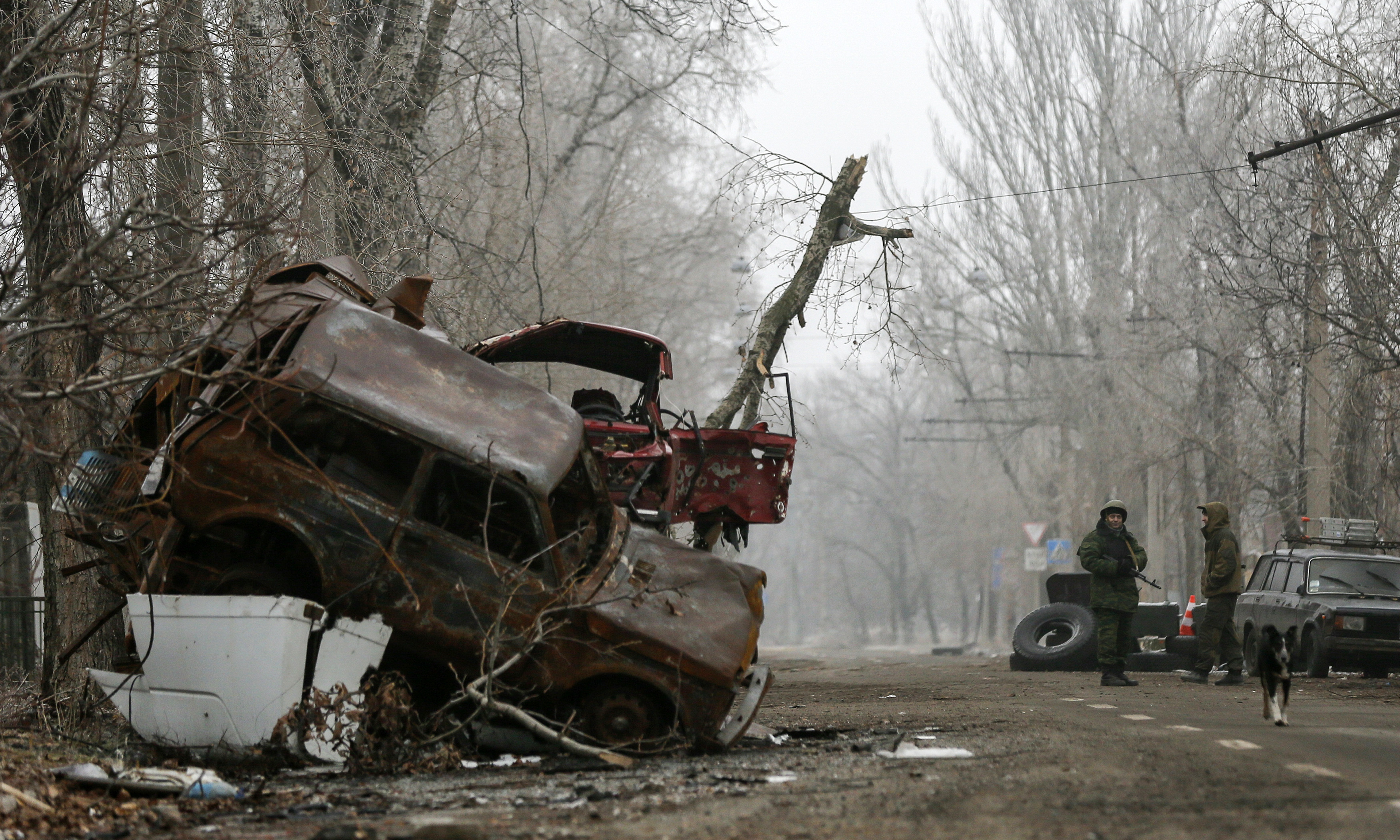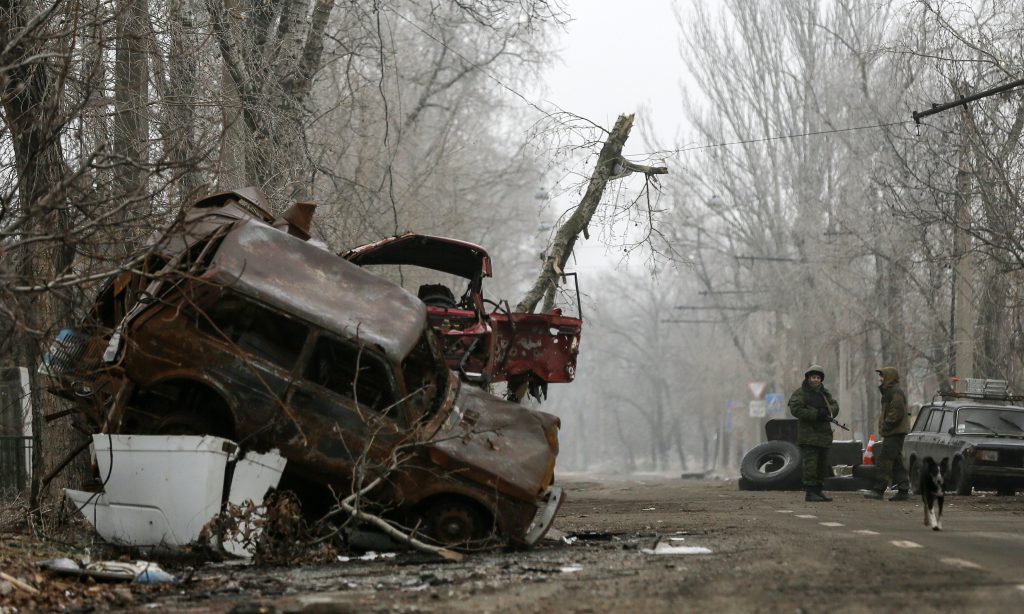
The War at Donetsk’s Airport is On—And Peace Talks Planned for This Week Are Off
The intensified battle between Ukraine and Russia for the airport in Donetsk seems likely to be a fight over this month’s military message in the Donbas war.
Russia’s army veterans, fighting as mercenaries, form the bulk of the anti-Ukraine force in Donbas. And the government of President Vladimir Putin wants to inflict on Ukraine as defeat big and visible enough to send a message of Ukraine’s increased vulnerability. That would put pressure on the government in Kyiv to accept an unfavorable new set of negotiations with Russia—a round of talks the Kremlin had hoped to begin today in Astana, the capital of Kazakhstan.
Ukrainians, too, see the symbolic value of the airport, which has become an epic tale of Ukrainian heroic patriotism. Ukrainians have taken to describing the airport’s defenders as “cyborgs”—a celebration of their tenacity in the war against a more powerful foe. (Eurasia scholar Paul Goble noted this month that a Ukrainian online dictionary has declared “cyborg” the country’s hot new word of 2014 because of its use as a patriotic nickname for tough Ukrainian troops.)
Why Putin Needs New Talks
Putin needs new negotiations in part because, simply put, he didn’t win the last ones. Last summer’s talks gave us the September 5 Minsk accords, which in principle require Putin to help demarcate an agreed cease-fire line, and evacuate Russian heavy arms and its mercenaries (perhaps 10,000 of them, according to the Ukrainian government) from the zone it has carved out in southern Donbas. It also would require Russia to hand back control of the Ukrainian border in southern Donbas to the Ukrainian government and accept international monitors to ensure that Russia wasn’t violating the border with troops movements or arms supplies.
The problem for Putin is that Western governments are actually insisting that these steps be implemented. Doing so (holding real elections for local governments for example) would leave the Kremlin far too uncertain of its ability to manipulate the Donbas region.
The worse news is this: Even if Putin just holds Donbas as he has it now, without implementing the Minsk deal, he ultimately will decide that his grip on this limited zone is insufficient for his needs. Putin’s strategic goal is to deter Kyiv’s government from further pursuing a place in the European and Western worlds. But Ukraine’s 2014 elections yielded a president, prime minister and legislature all firmly committed to the European course. That means Putin eventually will need a more powerful handhold on Ukraine’s sovereignty than just a “frozen conflict” in half of Donetsk and Luhansk provinces.
Putin would rather win that firmer grip on the cheap, through negotiations with intimidated interlocutors. He would like to try that through the talks proposed in Astana, but German Chancellor Angela Merkel is vetoing that attempt, at least for now. Holding the talks in the Kazakh capital, rather than by returning to Minsk, in Belarus, would help blunt the obvious point that the Minsk process has collapsed and that the new talks would have to circumvent its wreckage.
Putin would love the symbolic victory of defeating Ukraine’s vaunted cyborgs at Donetsk’s airport. He would hope that such a defeat for Kyiv would intimidate it enough to bring it to new talks ready to offer concessions, especially a halt to developing Ukraine’s ties to Europe. That notion would be a serious misreading of Ukraine’s mood. But it would be consistent with the over-optimistic notions with which Putin has pursued his Donbas adventure from the start.
James Rupert is an editor at the Atlantic Council.
Image: On December 16, fighting on a road leading to Donetsk's international airport had left burned-out vehicles, tree limbs and debris piled by a checkpoint of Russian-backed separatist fighters. (Reuters/ Maxim Shemetov)
